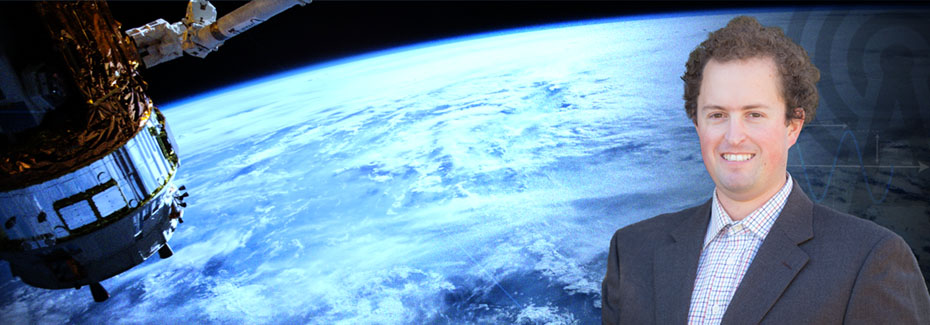Radio Frequency (RF) waves are everywhere, from deep underground to deep outer space. However, the RF waves caused by a nuclear explosion particularly intrigue Department of Materials Science and Engineering Assistant Professor Kyle C. Hartig, Ph.D. His research has been recognized by the Defense Threat Reduction Agency (DTRA) with a Young Investigator Award to further his research.
Each year the DTRA selects engineering and science-based researchers for the Young Investigator Awards whose work it designates as showing promise in its ongoing mission to counter the development and use of weapons of mass destruction.
Kyle C. Hartig earned his Ph.D. at Pennsylvania State University, and joined the Nuclear Engineering Program within the Department of Materials Science & Engineering at the University of Florida in 2017. His primary research interests include remote sensing, nuclear non-proliferation/counter-proliferation, nuclear security, and nuclear policy.
“The generation of nuclear-forensics-relevant information, such as device yield and prominence, is vital to the attribution and emergency response process following a detonation event. This work aims to provide prompt nuclear forensics information through fundamental understanding of the RF emission generation process in fireballs and their propagation in urban environments,” Dr. Hartig said.
“As an expert in nuclear forensics, Dr. Hartig has an extensive background working with numerous agencies, laboratories, and universities,” said Michele Manuel, Ph.D., chair of the Department of Materials Science & Engineering. “This award exemplifies his research excellence and illustrates UF’s expertise in novel techniques that can be used to characterize nuclear and conventional weapons detonations, an important component of national security.”
For Hartig’s research team, one of the biggest advantages of working in the Nuclear Engineering Program at the University of Florida is their ready access to its advanced, ultra-fast laser and spectroscopic facilities located in the Department of Material Science & Engineering.
